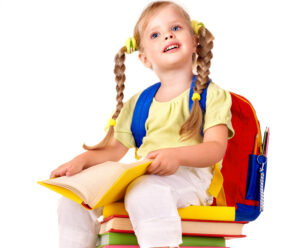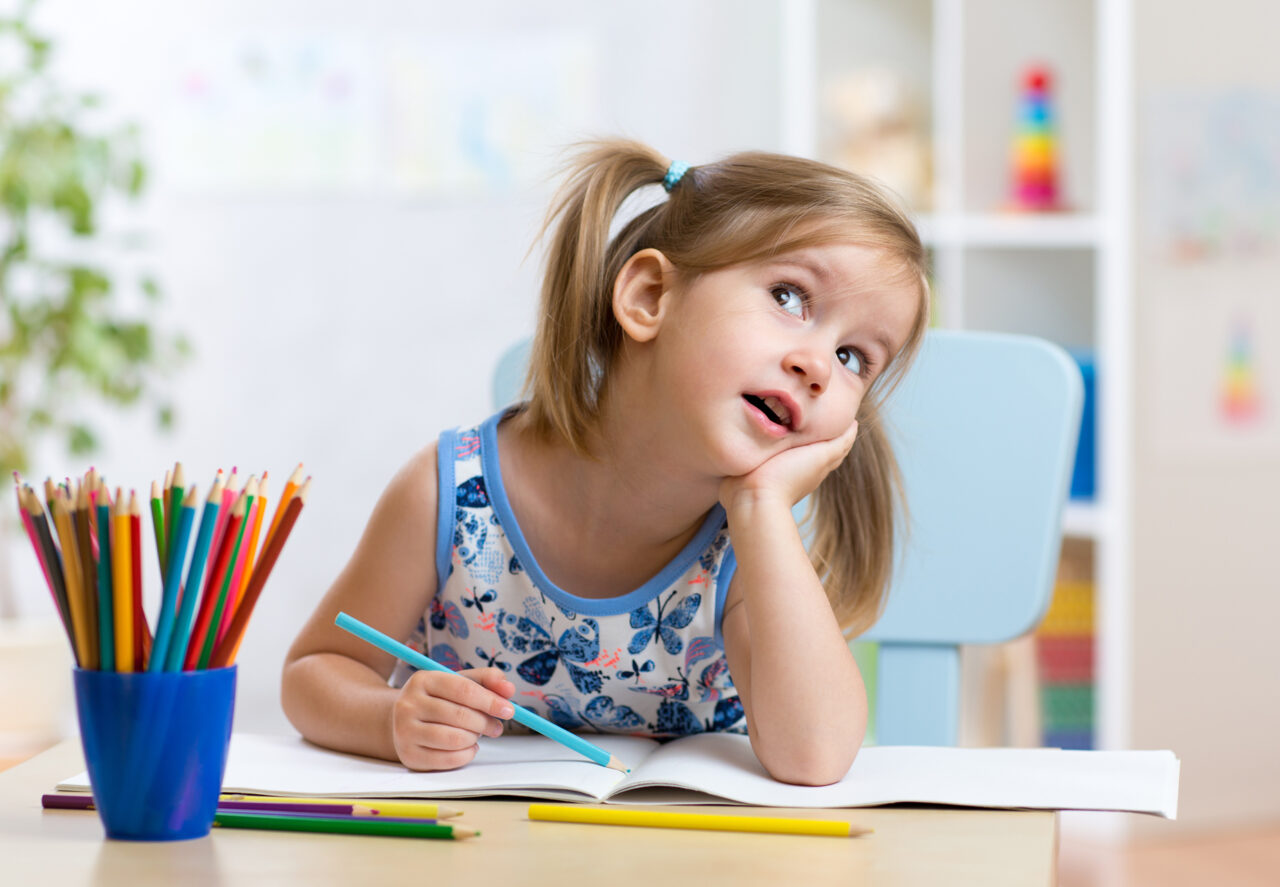How to stop comparing your child to others
Sometimes comparisons can be very helpful, but only when you have the time and opportunity to recognize and understand their deeper meaning. Why you should stop comparing your child to others and how to make comparisons a developmental tool.
“I’m cooler, I get more likes and 4th grade science activities! And my daddy’s shoes are from you know who?! Do you even know how much my Legos are worth? I already have 500 followers on YouTube. I’m playing this cool game where you have to kill everyone with 20 rounds, you don’t even know it! I’m the biggest loser in my class, my mom thinks I’m the most worthless kid. My mom always says my sisters are smarter and I’m going to be a plumber, and I am! You know how much money plumbers make, don’t you? They told me on the playground: a lot. But I don’t want to be a plumber, I want to be the greatest Meinkraft player and make videos of myself. I’m going to be a vlogger. But my mom said she wouldn’t be proud of me then, but maybe I’ll win and I’ll have lots of money and she’ll be happy then. What do you think?”
What do I think about 5th grade math practice? I think we compare everything to everything all the time. And it’s always been that way. It’s a biological mechanism, obviously related to the survival of the species and security. The male peacock has to be flamboyant in order to be looked at by females and chosen to reproduce. Females must be attractive to be noticed by the males. In the animal world, the strongest, the most beautiful, the cleverest wins. People fight for the right to be the most successful in the ratings of the smartest, the most able-bodied, and the wealthiest. There is an unspoken rule: the higher you are in a ranking, the higher in the invisible ranking of happiness.
Mothers who are not indifferent to their children begin to compare them while still in the womb: this one is calm, and the previous one was a soccer player – always kicking the belly from the inside out. Society after birth only reinforces the desire to compare.
“Does mine already talk and yours doesn’t yet?”, “Does yours have a potty mouth since birth? Mine isn’t yet!”
As the years go by, the social machine presses harder and harder:
“Mine got into the most prestigious school in town, and you didn’t have enough money, but it’s a contribution to the future, right?”
Not being ranked generates our anxiety and even guilt. Is everything okay with my child, am I doing everything right? How do I make sure my child tops the most successful rankings? No, not to top the list, but to take comfort in the fact that he’s fine and I’m fine, and we’re doing everything right. It’s not our fault and we’re doing the best we can, we’re good parents. It’s like we’re keeping the child’s future success in check.
In our country in Soviet times, when almost everyone had the same salary – nothing, and the same lack of opportunities, education provided an understandable social elevator: if you study well, you will have a better job and better opportunities. Today this intellectual elevator does not really work, and former losers can easily stand at the head of corporations, paying money to excellent students. There are many people who don’t turn on or fall out of the career ladder. They read, they draw, they sing, they grow a garden, they don’t crawl up the social success rankings, not because they have achieved nothing there, but because they are included in their internal process of moving toward harmony and happiness much more than they are in the socially approved one.
Can we not compare ourselves and the child and https://argoprep.com/store/product/7th-grade-common-core-math-workbook-multiple-choice/ at all? Clever psychological books say quite unambiguously: don’t compare your child with others! But comparison is one of the functions of thinking. How do you turn off thinking selectively about your children? And is it necessary? The articles, of course, mean “even if you compare, don’t say it to your child, silence is golden.” That is, it is assumed that the child himself has no idea that he is doing better somewhere, somewhere worse. It’s as if his function of comparing himself to others is turned off. But that’s not true. All children compare: “I won, I can jump on one leg, and you can’t, be-be-be…”
Comparison is based on analysis, one or more features are highlighted by which the comparison is made. To develop thinking processes, the child is taught to compare everything with everything: this is big is small, this girl is a boy, this character is good, and this one is evil. Comparisons here are superficial. We are comparing outward signs.
When we say, “You can’t write beautiful letters, but your classmate Masha can!”, we mean, “You should take an example from Masha, compare yourself to Masha, become like Masha, because then you will write beautifully like Masha. I will feel better as a mother, and I will be sure that my child is on the path to future happiness. We believe that being able to write beautifully is the path to good grades and continued happiness. But is it?
To a certain extent, we believe that our words are a little magical: said the words and it will lead to a change in the child. If the child had the skills to write beautifully, he would write, but no magic words will instantly develop these skills. It will take some effort on the part of the parent and the child.
What does a child hear when he is told about Masha? “Masha is a better writer. You are bad, and Masha is good. I would love her, but not you.” What action will the child take after being told about Masha? More often than not, nothing. Will he go to learn to write beautifully? Usually not. What will he feel? That he is not loved. He will also probably hate Masha, who steals his mother’s love.
Comparisons can also be more profound: a person’s thought goes from external signs of similarity and difference to internal, from the phenomenon to the essence: “Masha writes beautifully, my child does not. Masha’s motor skills are better developed, maybe she was taught a lot in kindergarten or her good motor skills are inherited genetically, I don’t know. You can try to give the child extra lessons to make it easier for him to write letters now, maybe in the future it will be easier for him to learn other school skills. I’m going to look for information on that. But first I’m going to talk to the kid about whether he likes the way he writes letters, maybe he can write more beautifully, and it’s not about motor skills, but the fact that he doesn’t consider it important and necessary in contrast to me and the teacher. After that, I’ll make a plan of action, because my job as a parent is to help my child. And probably the transition to this, a deeper level of comparison as part of thinking can be considered one of the indicators of human intellectual development, as well as an indicator of a society that cares not only and not so much about the safety of its members, as about the happiness and development of each child.
When your mind runs through comparing your child to others not in his/her favor, when your child compares himself/herself to others, ask yourself the question, “Why does it matter to me/why does it matter?” Think about what you see behind this comparison?
What did the child want to tell you? What experiences does he/she want to tell you about?
Why am I making this comparison not in the child’s favor? Why am I coloring it negatively? Could it be something about me? Was I like that once, too? I don’t want my child to repeat my mistakes?
Where did I get the idea that my opinions and my values are perfect – and the child should live up to them?
Can and should I help my child?
If a child is endlessly included in comparing himself or herself to others, maybe he or she wants to elevate himself or herself to add to his or her self-confidence? What can you do about it? How can you help him? Perhaps your child doesn’t see his or her strengths, he or she hasn’t been told much about it, fixating only on developing weaknesses.
Comparisons in our heads are not so dangerous and can even be useful. It is dangerous when the other person next to you firmly knows what you should be and what is unequivocally important to you in life in order to become successful and happy. It is dangerous when someone knows firmly how to live your life properly for you, how to make you like someone else. Maybe that person next to you is right about many things, but will you feel like yourself next to them?

Recent Comments